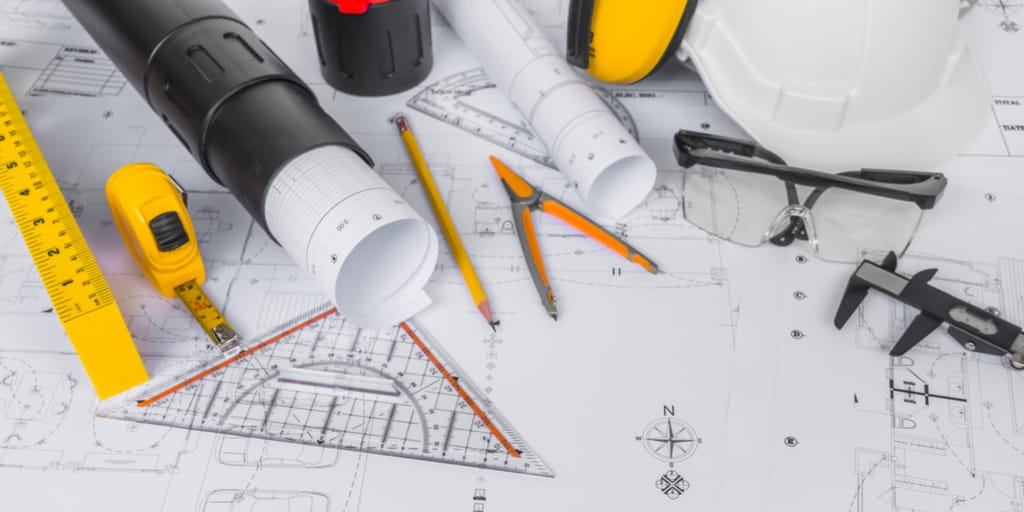Careers
What is the Building Standards Service?
The role of the service is to ensure the safety of the public and check that buildings are designed in compliance with building regulations.




Is a Career in Building Standards for you?
You’d work with members of the public, architects, designers, builders and engineers as they plan and construct building projects ranging from a small house extension to a large-scale development.
You would:
• Assess building plans and specifications to determine compliance with building regulations
• Prepare and issue technical reports to designers and architects
• Work with designers and architects to find the best solutions for their clients
• Visit sites to inspect building work during development
• Liaise with developers and their clients as work progresses
• If a building has been damaged, for example by fire or bad weather, then you would survey the building and advise the owners what they need to do to make it safe. If it cannot be repaired then you would approve its demolition.
You may also on occasion check the safety at public venues like sports grounds, open-air events, cinemas and theatres and authorise entertainment licenses for events in terms of electrical work, structures and fire safety.
If you decide that a building project does not meet regulations, you would work with the applicant to make changes to the plans to ensure the work meets the Scottish building regulations.
Open this link for an informative look via Skills Development Scotland - A Career in Building Standards
Modern Apprenticeship - Architectural Technology & Building Standards
Modern apprenticeship programme - Building Standards Partnership Course with Fife and UHI/Inverness Colleges - developed in association with the Energy Skills Partnership (ESP) and LABSS
The aim of Modern Apprenticeship programmes is to produce adaptable, multi-skilled staff who can meet the needs of your business in the present and the future.
Employing a Modern Apprentice means making a commitment to invest in their learning and personal development. In return, the Apprentice makes a commitment to work for the benefit of your organisation. This is formalised in an Individual Training Plan, which is signed by all parties.
This Architectural Technology & Building Standards partnership is an entirely on-line course with NO requirement to physically attend either college.
Enrolment should be done through UHI Inverness, and they will ensure candidates are fully enrolled on both courses –
Contact Pauline Tuthill - pauline.tuthill.ic@uhi.ac.uk.
Local Authorities should contact Pauline if they wish to place an MA on the course.
There are no other expenses to be met by Local Authorities or candidates for the training element of this partnership course
Graduate Apprenticeship - Study towards a degree in Construction and The Built Environment while in paid, full-time employment
Graduate Apprenticeships are fully funded through Scottish Funding Council and Student Awards Agency Scotland (SAAS), and supported by Skills Development Scotland. Once you have been offered a Graduate Apprenticeship place, you should apply to SAAS for funding, who will pay your tuition fees directly to the university. There are no associated learning costs to the Graduate Apprenticeship employer.
All Graduate Apprenticeship applicants must meet SAAS eligibility and residence conditions to apply. Visit the SAAS website for more information.
Current Building Standards Vacancies
LABSS Ambassadors
Promotion of the building standards profession can be done most effectively by the people in those job roles who can speak from their lived experience. On that basis, an Ambassadors Network has been established with people working in the profession from across Scotland. Ambassadors are taking part in outreach activities with schools, colleges and universities. Further volunteers are welcome to join the network and participate in activities that will raise awareness of what the building standards profession does.
Career Experiences
Remote Verification Inspection? This is the prominent question that triggers the most discussion within our building standards team. In recent months our team determined that Remote Verification Inspection (RVI) would be a real time virtual inspection arranged and determined by the case officer, using our existing technology with the ability to invite various parties, record proceedings and share the approved plans on screen. It was the best option to determine reasonable enquiry in the circumstances and ensure the customer was informed efficiently.
As a result of the COVID-19 crisis, local authority building standards teams have had to rethink our traditional site inspection methods and embrace virtual digital technologies.
Building Standards
What is Building Standards?
The role of the service is to ensure the safety of the public and check that buildings are designed in compliance with building regulations. The checking process runs from design stage through to construction and completion. The service is provided by each of Scotland’s 32 Local Authorities and they are looking for people to join this exciting profession.
You’d work with members of the public, architects, designers, builders and engineers as they plan and construct building projects ranging from a small house extension to a large-scale development.
a) facilitating the greater use of shared resources and expertise with a common understanding of competency
b) improving consistency by having a national basis for measuring the competency of building standards surveyors
c) improving the competency of building standards surveyors
Workforce Strategy
Over the next 3 years, actions from the strategy will assist local authority verifiers to improve their operational resilience, develop entry points for a career into the building standards profession and promote building standards as a rewarding professional career in the public sector.
Partnership working between Local Authority Building Standards Scotland (LABSS), Building Standards Division (BSD) and other key partners is continuing. Partnership working is ensuring the projects are delivered on-time and in the best interests of verifiers
The closure report summarises delivery of the strategy actions across five projects with details on specific outcomes and benefits for all building standards verifiers.